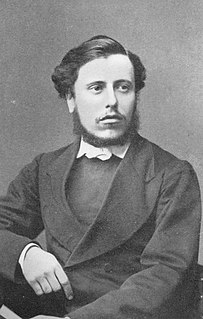Top 20 Quotes & Sayings by William Robertson Smith
Explore popular quotes and sayings by a Scottish scientist William Robertson Smith.
Last updated on April 15, 2025.
But we must not forget, this ritual expressed, certain ideas which lie at the very root of true religion, the fellowship of the worshippers with one another in their fellowship with the deity, and the consecration of the bonds of kinship as the type of all right ethical relations between man and man.
It is only in times of social dissolution, as in the last age of the small Semitic states, when men and their gods were alike powerless before the advance of the Assyrians, that magical superstitions based on mere terror, or rites designed to conciliate alien gods, invade the sphere of tribal or national religion. In better times the religion of the tribe or state has nothing in common with the private and foreign superstitions or magical rites that savage terror may dictate to the individual.
This, it may be said, is no more than a hypothesis, but it satisfies the conditions of a legitimate hypothesis, by postulating the operation of no unknown or uncertain cause, but only of that force of precedent which in all times has been so strong to keep alive religious forms of which the original meaning is lost.





















